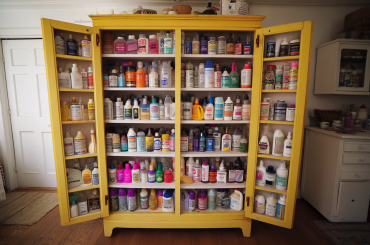Last Christmas, I watched my cousin unwrap yet another cheaply made gadget that would probably break by February, while my aunt sheepishly apologized for the excessive packaging surrounding what was essentially a £10 impulse purchase. It was one of those moments that crystallized everything wrong with our approach to gift-giving—the waste, the thoughtlessness, the disconnect between intention and impact. That’s when I decided to completely rethink how I approach presents, diving headfirst into sustainable gift giving that actually reflects my values rather than contradicting them.
A gift counts as environmentally friendly when it’s made with minimal negative impact on the world around us. This means using renewable resources, minimizing waste, avoiding exploitation of human labor, and creating products designed to last rather than break. Organic cotton clothing, fair-trade products, and well-crafted kitchen items are all examples of sustainable presents that align with environmental protection principles.
What I’ve discovered through years of sustainable gift giving is that these presents often mean more to recipients than conventional alternatives. There’s something powerful about receiving a gift that tells a story—where the materials came from, who made it, how it was designed to last. When my friend opened the beeswax wraps I’d made for her last birthday, complete with a little card explaining how they’d replace hundreds of plastic wraps over their lifetime, her reaction was completely different from the polite “oh, lovely” response most gifts receive.
The advantages of sustainable giving extend far beyond environmental benefits. Many eco-friendly gifts help support local economies and fair trade practices, meaning that people get paid fairly for their labor rather than being exploited by global supply chains. This creates positive social impact alongside environmental benefits, making each gift a small act of justice as well as generosity.
Sustainable gift giving also tends to be more thoughtful by necessity. You can’t just grab something from the nearest shop—you have to consider the recipient’s actual needs, preferences, and lifestyle. This forces us to move away from generic, forgettable presents toward gifts that demonstrate genuine understanding and care.
For birthdays, sustainable presents can be particularly meaningful because they’re celebrating the individual rather than the occasion. Eco-friendly gift giving for birthdays works best when you focus on the person’s specific interests and needs rather than generic “nice things.”
Reusable items make fantastic sustainable birthday gifts because they serve both the recipient and the environment. A high-quality stainless steel water bottle might seem mundane, but when it’s beautifully designed and perfectly suited to someone’s lifestyle, it becomes a daily reminder of your thoughtfulness. I gave my hiking-obsessed brother a gorgeous bamboo travel mug that keeps his coffee hot for hours during early morning adventures—he uses it constantly and texts me photos from various mountain tops.
Beeswax wraps have become one of my go-to gifts because they’re practical, beautiful, and spark conversations about plastic alternatives. I’ve started making them myself using local beeswax and organic cotton fabric in patterns that reflect each recipient’s style. The process is meditative, the results are lovely, and they typically last years with proper care.
Organic and fair-trade products tell important stories about ethical production. T-shirts made from organic cotton cause less environmental damage and often feel noticeably better than conventional alternatives. Fair-trade coffee and chocolate ensure that growers receive fair compensation while producing higher quality products. Companies like Patagonia and Equal Exchange have built entire business models around these principles.
Experience gifts eliminate material waste while creating lasting memories. Workshop tickets, cooking classes, nature tours, or memberships to environmental organizations give recipients something to look forward to while supporting causes or skills that align with sustainable living. I’ve given friends everything from foraging workshops to pottery classes, and these experiences often become stories they tell for years.
Wedding gifts present unique opportunities for sustainable gift giving because couples are typically building a shared life together. Sustainable home design principles can guide choices that will serve the couple for decades rather than just looking nice for a few years.
Eco-friendly home goods like bamboo kitchenware, organic cotton bedding, and reclaimed wood furniture often cost similar amounts to conventional alternatives while offering superior durability and environmental benefits. I’ve learned to research brands thoroughly—companies like Coyuchi specialize in beautiful, sustainable home textiles that actually improve with age rather than deteriorating.
Energy-efficient appliances make practical wedding gifts that reduce utility bills while minimizing environmental impact. LED lighting systems, solar-powered chargers, and efficient kitchen appliances help couples build sustainable habits from the beginning of their shared household. These gifts keep giving through reduced energy costs and environmental impact.
Charitable donations in the couple’s name create meaningful gifts without material possessions. Many couples appreciate contributions to causes they care about, especially if they’re trying to minimize accumulation of physical objects. This approach works particularly well for couples who already have established households and don’t need more stuff.
Holiday seasons often amplify gift-giving pressure while creating massive amounts of waste. Sustainable gift giving during holidays requires planning ahead and setting clear intentions about what you’re trying to accomplish beyond just checking names off lists.
DIY gifts demonstrate effort and creativity while minimizing environmental impact. Homemade candles using soy wax and wooden wicks, natural soaps crafted with locally sourced ingredients, or preserved foods made from seasonal produce all show genuine thoughtfulness. The time investment communicates care in ways that purchased items often can’t match.
Best sustainable presents often incorporate technology that reduces environmental impact. Solar-powered gadgets, biodegradable phone cases, or energy-efficient electronics can satisfy recipients who love new technology while supporting environmental goals. Brands like Nimble create tech accessories from recycled materials without compromising functionality or aesthetics.
Subscription services for eco-friendly products spread the gift across many months while introducing recipients to sustainable alternatives they might not discover otherwise. Monthly deliveries of eco-friendly cleaning products, organic groceries, or zero-waste lifestyle items help people transition to more sustainable habits gradually. Companies like Grove Collaborative offer various environmentally focused subscription options.
Choosing the right sustainable gift requires considering the production process, materials, and total environmental impact. It’s also important to verify that presents are genuinely sustainable rather than just marketing themselves as eco-friendly through vague claims.
When selecting eco-friendly gifts for special occasions, materials matter enormously. Choose items made from renewable and recyclable sources like bamboo utensils, recycled glassware, or furniture crafted from reclaimed wood. These materials often age beautifully while reducing demand for virgin resources.
Production methods should align with environmental and social values. Seek suppliers who use low-impact manufacturing processes and treat workers fairly. Certifications from organizations like Fair Trade, ECOCERT, or B Corporation status provide third-party verification of these commitments.
Durability ensures that gifts provide long-term value rather than becoming waste within months. Well-made stainless steel bottles, solidly constructed organic clothing, and carefully crafted wooden items can last decades with proper care. Quality might cost more initially but delivers better value over time while reducing environmental impact.
Local sourcing reduces transportation emissions while supporting regional economies and artisans. Supporting local sustainable businesses creates community resilience while often providing more interesting and personal gift options than mass-produced alternatives.
Verifying sustainability claims requires research because greenwashing is rampant in gift markets. Look for specific information about materials, manufacturing processes, and worker conditions rather than vague terms like “eco-friendly” or “natural.” Third-party certifications provide more reliable verification than company self-assessments.
Brand research reveals companies’ genuine commitment to sustainability versus marketing positioning. Check whether brands provide transparent information about sourcing, manufacturing, and labor practices. Look for evidence of ongoing environmental and social initiatives rather than just marketing claims.
Direct communication with companies can clarify sustainability practices when information isn’t readily available. Reputable sustainable businesses typically welcome questions about their processes and can provide detailed information about materials, manufacturing, and environmental impact.
Supporting businesses that demonstrate environmental commitment through concrete actions—like reforestation programs, renewable energy use, or waste reduction initiatives—ensures that your gift purchases align with your values while encouraging responsible business practices.
Online platforms specializing in sustainable products offer curated selections that simplify finding genuine eco-friendly gifts. Websites like EarthHero and Package Free Shop focus specifically on environmental criteria, making it easier to find appropriate options for various recipients and occasions.
Local artisans and farmers’ markets provide unique sustainable gift options while supporting community economies. Handmade items often tell interesting stories about materials and production methods while offering customization options not available through mass retail channels. Exploring local food sources can reveal gift possibilities from regional producers.
Packaging considerations should extend sustainable gift giving principles through the entire presentation. Reusable gift bags, recycled paper wrapping, or creative alternatives like fabric wraps (which become part of the gift) reduce waste while often looking more interesting than conventional packaging.
Gift wrapping creativity can enhance sustainable presents while eliminating waste. Brown paper decorated with natural elements, reusable fabric bags, or plantable seed paper that grows into flowers all extend the environmental thoughtfulness through every aspect of the gift experience.
What I’ve learned through years of sustainable gift giving is that these presents often create deeper connections between giver and recipient. When someone receives a gift that reflects careful consideration of environmental and social impact, they understand that you’ve thought about them as a whole person with values and concerns beyond just their immediate preferences.
The ripple effects of sustainable gift giving extend far beyond individual presents. Each thoughtful choice demonstrates to recipients that environmental responsibility can be beautiful, practical, and meaningful. Many people who receive sustainable gifts become more interested in these principles for their own purchases, creating expanding circles of positive impact.
Planning ahead becomes essential for successful sustainable gift giving because the best options often require more research and sometimes longer lead times than conventional alternatives. But this planning process often reveals perfect gifts that align with recipients’ interests in ways that last-minute purchases never could.
Sustainable gift giving isn’t about deprivation or compromise—it’s about abundance of thought, care, and positive impact. The best sustainable presents demonstrate that environmental responsibility enhances rather than restricts our ability to show love and appreciation for the people who matter to us. In a world overwhelmed by thoughtless consumption, gifts that reflect genuine consideration for both recipient and planet stand out as expressions of deeper values and more meaningful connections.








